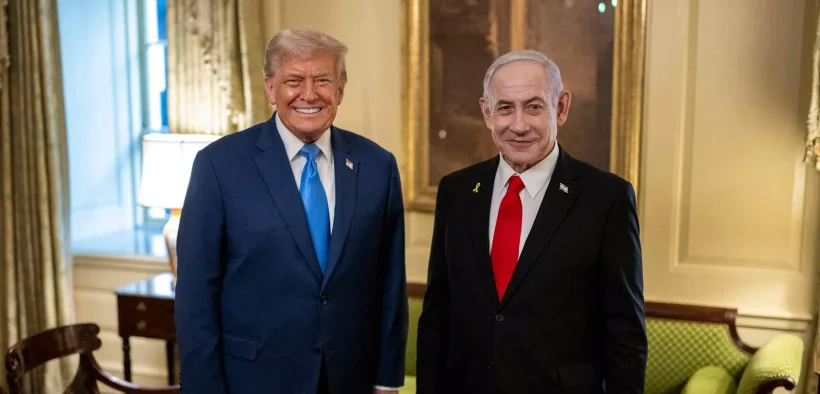Israeli Prime Minister Benjamin Netanyahu handed Donald Trump a nomination letter—personally addressed to the Nobel Committee—declaring, “it’s well deserved, and you should get it,” at a dinner in the White House on July 7, 2025. The nomination centers on Trump’s diplomatic milestones: the Abraham Accords—tying the UAE, Bahrain, Sudan, and Morocco to Israel—and his ongoing efforts toward a 60‑day ceasefire to halt hostilities in Gaza.
Advertisements

During the meeting, Netanyahu emphasized that Israel and the U.S. were collaborating to identify countries willing to “give Palestinians a better future,” invoking hopes for a regional resolution. Trump, visibly moved, called the nomination meaningful, particularly coming from Netanyahu .
This marks one in a series of nominations Trump has received in 2025. Earlier, Pakistan’s military chief Asim Munir recommended him for helping secure a ceasefire between India and Pakistan, while Rep. Buddy Carter (R‑Ga.) also put forward his candidacy—highlighting ceasefire progress between Israel and Iran. However, Pakistan’s nomination drew public criticism at home, with opponents calling it “crass flattery” and staging protests.
Critics argue that Trump’s Nobel bids are more political gestures than reflections of enduring peace. Questions persist about the substance behind his diplomatic claims—especially as detailed ceasefire terms remain under negotiation and some see the gesture as symbolic rather than transformative.
The Nobel Committee maintains a policy of confidentiality and is unlikely to reveal nominees publicly or assess Netanyahu’s submission immediately. As of July 8, 2025, Trump is among several potential 2025 peace prize recipients, though no front‑runner has emerged.
In the meantime, the spotlight remains on diplomatic negotiations: the 60‑day Gaza truce, Iran‑Israel de‑escalation, and the expansion of the Abraham Accords. Whether these efforts carry enough impact to merit Nobel recognition is yet to be judged.


